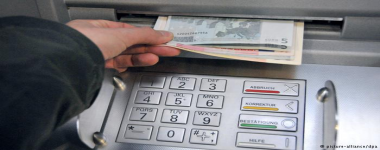Can a Central Bank Lend Money to Firms, Individuals or Households?
by Dirk Ehnts, Econoblog101
Or, put differently, can firms, individuals or households borrow from the central bank? The answer for modern central banks is: no.

Here is an excerpt from “the Statute”:
CHAPTER IV
MONETARY FUNCTIONS AND OPERATIONS OF THE ESCB
Article 17
Accounts with the ECB and the national central banks
In order to conduct their operations, the ECB and the national central banks may open accounts for credit institutions, public entities and other market participants and accept assets, including book entry securities, as collateral.
This means that firms, individuals and households cannot borrow directly from the ECB because they do not have accounts at the ECB. I am not a legal expert, but the Swabian housewife does not really fall into the category “other market participants”, so I doubt that this “logic” would give any discretion to the ECB when it comes to creating accounts at the central bank.
Financial firms, by the way, say the same thing. The central bank cannot lend reserves to the private sector, and also banks cannot lend reserves to the private sector. the Statute, as Nomura notes in 2011. Two years later, Standard&Poor’s has a report out titled: Repeat After Me: Banks Cannot and Do Not “Lend out” Reserve. Academic economists like Randall Wray know that reserves cannot be “lent out“, and that economists knew that for many decades! The Bank of England knows it, too:
“A related misconception is that banks can lend out their reserves. Reserves can only be lent between banks, since consumers do not have access to reserves accounts at the Bank of England.”
So, it is about time to replace the money multiplier of macroeconomics textbooks …

Â
… with a better description of how money and credit work.

